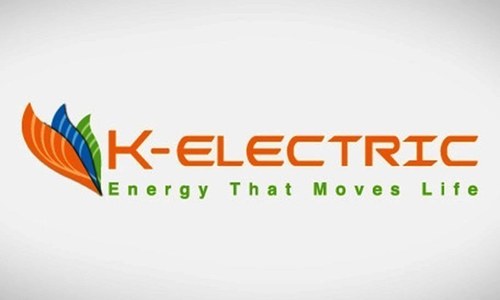ISLAMABAD: The National Electric Power Regulatory Authority (Nepra) on Tuesday hinted at charging mark up on over Rs43 billion determined by it for refund to electricity consumers in Karachi under tariff clawback mechanism and to examine the extent of delays in investment for new generation plants over the past seven years before allowing another multi-year tariff (MYT).
At a public hearing on KE’s petition for a generation tariff, the Karachi-based industrial consumers suggested that instead of allowing the private utility to set up plants on expensive fuel, efforts should be made to evacuate maximum power supply from the cheaper national grid to facilitate business opportunities in the country’s largest industrial city suffering from additional quarterly charges and fuel cost adjustments higher than the national average.
The management of K-Electric has requested the regulator to set separate electricity generation tariffs for its power plants keeping in view central economic dispatch and for better visibility and transparency. For the first time, the integrated power utility is seeking separate licences and tariffs for its generation, transmission and distribution businesses, saying it was in line with the IPPs model followed by the regulator for the public sector distribution companies and independent power producers (IPPs). As per the petition, the KE has requested a generation tariff from Rs22.76 per unit to Rs40.12 per unit for the RLNG-based power generation, and Rs37.31 per unit to Rs54.30 per unit for the (HSD)/HFO-based power generation.
During a three-hour hearing presided over by Nepra Chairman Tauseef H. Farooqui, the members and case officers of the regulator said the investment allowed by the regulator in the previous MYT (for seven years) had not been completed within the given deadlines and even the latest Bin Qasim Power Station (BQPS-3) unit currently in completion phase should have been completed years ago.
Utility seeks generation tariff for its plants
The Nepra case officers reported that the plants were also given returns based on those investments which could not be passed through mid-year review and stood charged to consumers in tariff.
The Nepra members also suggested looking into the issue of plants completing their project life but not being transferred to the government as envisaged under the licences or relevant agreements and whether these plants were taken at their residual value or scrap value. The KE’s chief financial officer Amir Ghaziani and the Nepra team blamed each other for taking different positions while dealing with public sector entities and KE and whether to follow prudent cost principles, cost plus formula or past precedents.
Some questions were also raised as to what benefit the consumers of Karachi had gotten from KE’s privatisation and previous MYT, Mr Ghaziani said the KE’s average tariff would have gone beyond Rs80 per unit instead of Rs31-32 at present as the utility had reduced losses from 45pc to 15pc and improved recoveries to 95pc which was unprecedented when compared with public sector Discos. He was reminded that some Discos including some larger than KE like Faisalabad, Lahore and Islamabad had fewer losses and higher recoveries than KE.
KE is currently operating under an MYT regime which will complete its term at the end of the current fiscal year. This time the company has filed for separate tariffs for each of its six plants, all of which can run on dual fuel except for SITE and Korangi Gas Turbine Power Stations.
Published in Dawn, May 3rd, 2023













































Dear visitor, the comments section is undergoing an overhaul and will return soon.